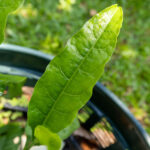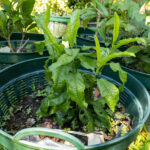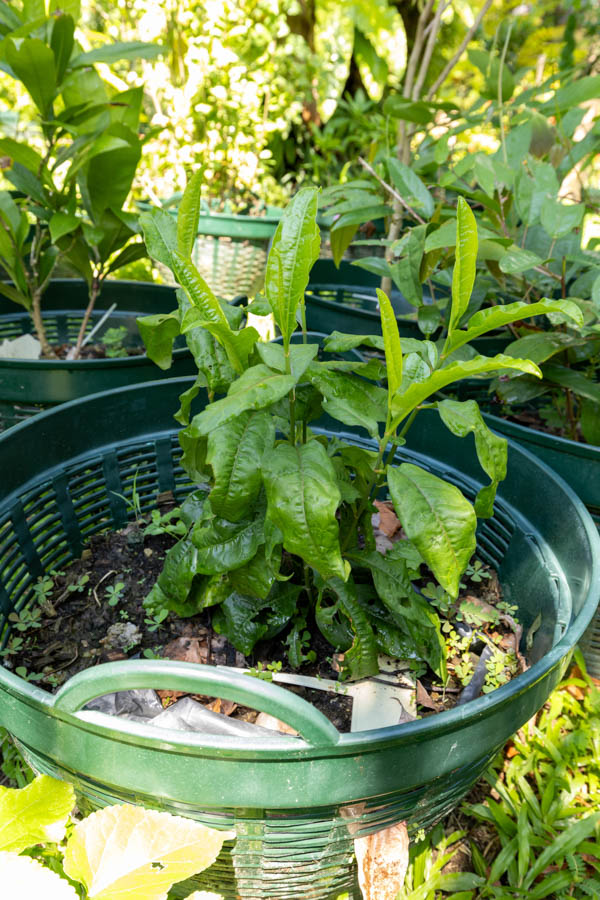เสาวรส (Sao Warot) / Passion Fruit
Family: Passifloraceae
Passiflora edulis, or เสาวรส in Thai, is a tropical climbing vine cultivated for its aromatic fruit and medicinal properties. Its leaves, flowers, and fruit are all used in traditional medicine and modern health applications.
Botanical Characteristics
The vine produces glossy green leaves with three lobes and prominent veins. Its showy white and purple flowers develop into round or oval fruit with a thick rind and juicy, aromatic pulp. The plant prefers full sunlight and good drainage, growing well in warm, humid climates.
Use in Thai Traditional Medicine
The leaves and fruit are known for their calming and digestive properties. Herbal infusions made from the leaves help reduce anxiety, induce sleep, and ease stomach discomfort. The fruit is used to refresh the body, aid digestion, and balance internal heat during hot weather.
Medicinal Compounds
Contains flavonoids, alkaloids, and glycosides that contribute to its mild sedative, antioxidant, and anti-inflammatory effects. The fruit is rich in vitamin C, beta-carotene, and dietary fiber, supporting immunity and gut health.
Culinary and Nutritional Uses
Passion fruit is consumed fresh, juiced, or used in desserts and health drinks. It provides a natural source of antioxidants and vitamins. The leaves can be brewed into tea to support relaxation and reduce stress.
Cultivation Notes
Passiflora edulis grows best in well-drained soil with regular watering and climbing support. Pruning encourages flowering and fruiting. The plant attracts pollinators and thrives year-round in tropical climates like Thailand.
Disclaimer: This information is provided for educational and historical purposes only. It is not intended as medical advice. Always consult a qualified healthcare professional before using any herbal preparation.




